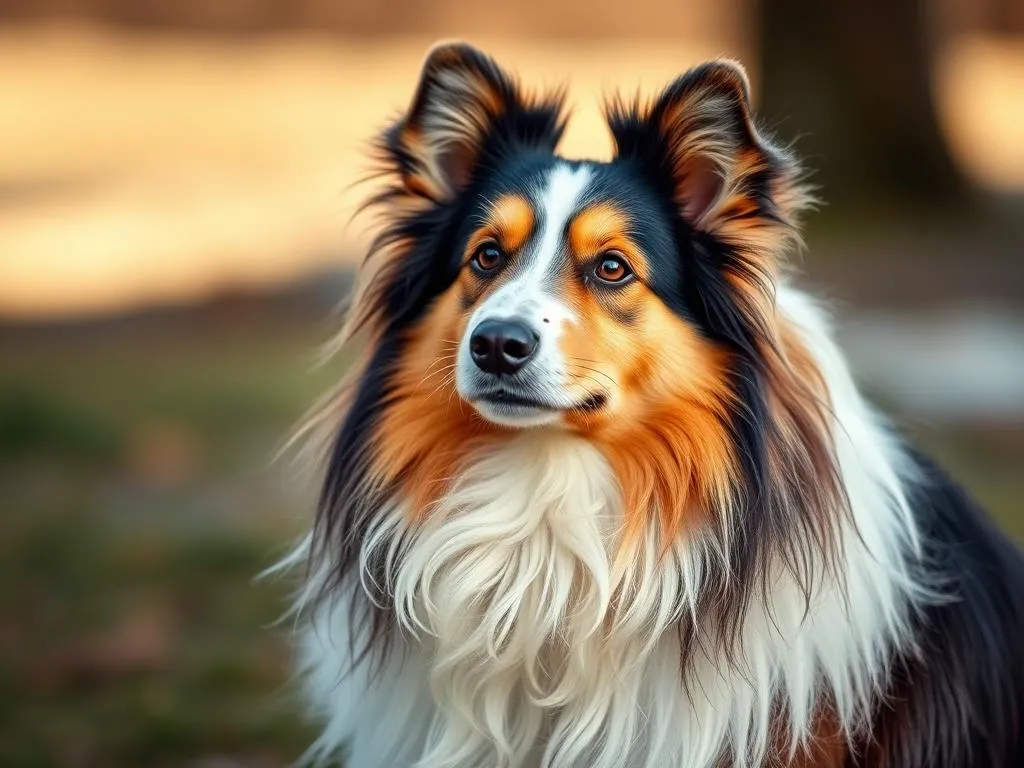
Introduction
Understanding dog breeds is crucial for pet ownership, as each breed comes with its unique set of characteristics, care requirements, and personality traits. Among these breeds, the Shetland Sheepdog stands out as a beloved companion known for its intelligence and loyalty. This breed’s rich history and charming traits make it a popular choice for many dog lovers. This article aims to provide a comprehensive overview of the Shetland Sheepdog, including its history, physical characteristics, temperament, care requirements, and health considerations.
History of the Shetland Sheepdog
The roots of the Shetland Sheepdog trace back to the Shetland Islands, a rugged and remote archipelago located off the northern coast of Scotland. The breed was developed primarily as a working dog, assisting local farmers in herding and guarding livestock, particularly sheep.
Origins of the Breed
The historical context of the Shetland Islands played a significant role in shaping this breed. Due to the harsh weather conditions and limited resources, farmers relied heavily on small, agile dogs that could work efficiently over the rocky terrain. The Shetland Sheepdog was bred from a mix of various herding breeds, including the Collie, which influenced its traits.
Influence of Other Breeds
The Shetland Sheepdog shares its lineage with several herding breeds, notably the Rough Collie. This connection is evident in its striking appearance and keen intelligence. Over the years, the breed has adapted to both working roles and companionship, making it a versatile dog.
Recognition and Popularity
The breed was officially recognized by the American Kennel Club (AKC) in 1911, which helped to increase its popularity. Today, the Shetland Sheepdog is celebrated not only for its herding abilities but also for its affectionate nature, making it a favorite among families and individuals alike.
Physical Characteristics
The Shetland Sheepdog is a medium-sized breed that exhibits a variety of physical traits contributing to its charm.
Size and Weight
Ideal height for a Shetland Sheepdog ranges from 13 to 16 inches at the shoulder, with a weight between 20 to 40 pounds. This size makes them manageable for most households while still providing the agility required for their original working purpose.
Coat and Color Variations
One of the most distinctive features of the Shetland Sheepdog is its double coat, which consists of a soft, thick undercoat and a longer, harsher outer coat. This double-layered fur helps protect them from the elements, making them well-suited for their native climate.
Common color variations include:
- Sable and white
- Black and white
- Blue merle
- Tri-color (black, white, and tan)
These colors often come with unique markings, adding to the breed’s aesthetic appeal.
Distinctive Features
The Shetland Sheepdog has a refined appearance, characterized by a wedge-shaped head, expressive eyes, and erect ears. Their bright, intelligent eyes convey a sense of alertness and curiosity, while their bushy tails and overall build reflect their herding heritage.
Temperament and Behavior
The temperament of the Shetland Sheepdog is one of its most endearing qualities.
General Temperament Traits
Known for being intelligent, loyal, and energetic, the Shetland Sheepdog thrives on interaction and mental stimulation. They are eager to please, which makes them relatively easy to train and a joy to have as part of the family.
Interaction with Families and Children
This breed is particularly known for its suitability as a family pet. Shetland Sheepdogs are affectionate and gentle with children, making them great companions for families. They tend to form strong bonds with their owners and are protective of their loved ones.
Relationship with Other Pets
In general, Shetland Sheepdogs get along well with other dogs and can coexist peacefully with smaller animals, thanks to their herding instincts. However, early socialization is vital to ensure they develop positive relationships with other pets.
Training and Socialization Needs
Early training and socialization are crucial for the Shetland Sheepdog. Their intelligence requires mental challenges, and proper socialization helps them become well-adjusted adults. Engaging in positive reinforcement techniques will yield the best results, enhancing their natural desire to please their owners.
Care Requirements
Caring for a Shetland Sheepdog involves several key areas, including grooming, exercise, and dietary considerations.
Grooming Necessities
Due to their double coat, Shetland Sheepdogs require regular grooming to maintain their fur and minimize shedding. Brushing their coat at least once a week is recommended, while more frequent grooming may be necessary during shedding seasons.
Recommended Grooming Tools
- Pin brush
- Slicker brush
- Undercoat rake
Using these tools will help keep their coat healthy and prevent matting.
Exercise Needs
Shetland Sheepdogs are active dogs that require daily exercise to stay healthy and happy. A minimum of 30 to 60 minutes of exercise each day is recommended. Activities can include:
- Daily walks
- Fetch games
- Agility training
These activities not only provide physical exercise but also mental stimulation, which is crucial for this intelligent breed.
Dietary Considerations
A balanced diet is essential for the health of a Shetland Sheepdog. High-quality dog food that meets their nutritional needs is recommended, and portion control is important to prevent obesity.
Common Health Issues Related to Diet
- Obesity
- Allergies
- Digestive issues
Being mindful of their dietary needs can help mitigate these health concerns.
Health Considerations
Like all breeds, the Shetland Sheepdog is prone to certain health issues.
Common Health Issues
- Hip Dysplasia: A genetic condition that affects the hip joint, leading to arthritis and pain.
- Eye Problems: Conditions such as cataracts and progressive retinal atrophy can occur, requiring regular veterinary check-ups.
- Skin Allergies: Some Shetland Sheepdogs may suffer from allergies that can cause skin irritations.
Importance of Regular Veterinary Check-ups
Routine veterinary visits are essential for monitoring the health of a Shetland Sheepdog. Regular check-ups can help catch potential issues early, ensuring a longer and healthier life.
Recommended Vaccinations and Preventive Care
Staying up-to-date with vaccinations and preventive care, including flea and tick treatments, is vital for keeping your Shetland Sheepdog healthy.
Training and Socialization
Training is an integral part of owning a Shetland Sheepdog, as it helps shape their behavior and enhances safety.
Importance of Training for Shetland Sheepdogs
Training is crucial not only for obedience but also for mental stimulation. A well-trained Shetland Sheepdog is a well-behaved companion, which is especially important given their protective nature.
Effective Training Methods
Positive reinforcement techniques are highly effective with this breed. Rewarding good behavior with treats, praise, or play encourages them to repeat those behaviors.
Socialization Tips
Introducing your Shetland Sheepdog to new people, pets, and environments from a young age will aid in their social development. This exposure can prevent behavioral issues and help them become confident and well-adjusted adults.
Living with a Shetland Sheepdog
Ideal Living Environment
The Shetland Sheepdog is adaptable but thrives in homes where it has space to play and exercise. They can live comfortably in apartments, provided they receive sufficient exercise.
Time Commitment and Lifestyle Considerations
Owning a Shetland Sheepdog requires a time commitment for exercise, grooming, and training. Daily routines should incorporate activities that promote bonding and mental stimulation.
Activities and Bonding with Your Shetland Sheepdog
Engaging activities such as obedience training, agility courses, and interactive games are excellent ways to bond with your Shetland Sheepdog. These activities not only strengthen your relationship but also provide the physical and mental challenges they need.
Conclusion
In summary, the Shetland Sheepdog is a remarkable breed that combines intelligence, loyalty, and a friendly disposition. Their rich history as working dogs has shaped them into versatile companions suited for various lifestyles. For prospective dog owners, the Shetland Sheepdog offers both companionship and protective instincts, making them an excellent choice for families and individuals alike. If you’re considering adding a dog to your family, look into adopting a Shetland Sheepdog from shelters or breed-specific rescues, as they can make wonderful additions to loving homes.








